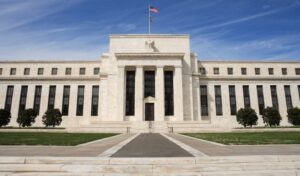
Banks will now be required to identify the owners of shell corporations.
Starting with the Panama Papers, a massive leak of confidential documents from a Panamanian law firm, much more light has been shed on the ways in which the rich and unscrupulous avoid government oversight of their assets. The Panama Papers—along with the Paradise Papers, which were released in a similar leak from another global offshore law firm—revealed that numerous politicians and celebrities have taken advantage of shell corporations and corporate secrecy to move money across borders.
Starting this month, banks now must comply with an extensive set of new due diligence requirements designed to combat money laundering and international money movement of the kind revealed in the Panama and Paradise Papers. The new rules, issued by the Financial Crimes Enforcement Network (FinCEN) of the U.S. Department of the Treasury, require financial institutions to gather additional information about the identities of the ultimate owners of entity clients. By requiring banks to gather information about the owners of anonymous shell corporations that they do business with, the Treasury Department and FinCEN hope to remove the incentive to hide shady behavior behind anonymous corporate ownership.
The new due diligence rules apply both to new and existing accounts. When a legal entity customer—such as a corporation or a limited liability company—opens a new account, banks are required to identify the actual people who control the entity. Banks can determine ownership either by identifying any party who holds more than a 25 percent stake in the entity or by identifying the party who controls the entity.
With respect to already existing accounts, the new requirements are intended to supplement the protections built into the Bank Secrecy Act. That law requires banks to create anti-money laundering programs. These programs generally consist of four parts: internal controls; training; a compliance officer; and independent oversight. FinCEN’s requirements now effectively add a fifth part: “customer risk profiles.” This new component is intended to ensure banks will understand better what their customers are doing and why.
Although money laundering’s very nature makes estimating its precise size difficult, it has become a global issue of the first order. Often using shell companies to hide their identities, oligarchs, tycoons, and criminals around the world avoid taxes, buy real estate, and transfer funds across borders.
It is estimated that money laundering results in a multi-trillion-dollar drain on the global economy. The French economist Gabriel Zucman, in his book, The Hidden Wealth of Nations, estimated that 8 percent of the world’s wealth—$7.6 trillion—was held in tax shelters, costing countries $200 billion in tax revenue.
According to a 2016 report issued by the Financial Action Task Force, the United States is exposed to significant money laundering and terrorist financing risks because of the massive size and global reach of the American financial system and its relative openness. Although the task force recognized that the United States has made tremendous progress in monitoring money laundering since the last task force evaluation in 2006, it did note that transparency issues remain a major weakness of the American anti-money laundering infrastructure.
The new FinCEN customer due diligence requirements are far from the first attempts by U.S. bank regulators to combat money laundering. The Bank Secrecy Act contains a number of anti-money laundering provisions, such as requiring banks to file reports every time a customer engages in a transaction involving more than $10,000 in cash and requiring customers to disclose foreign bank accounts. Beyond that, the USA PATRIOT ACT also imposed new know-your-customer requirements on banks to combat terrorist financing.
American regulators have imposed massive fines on numerous domestic and foreign banks who have violated money laundering regulations. Over the past two years, U.S. Bancorp was fined $613 million and Deutsche Bank was required to pay $630 million. Those fines pale in comparison to the nearly $2 billion in penalties inflicted on British bank HSBC in 2012 for allowing Mexican drug cartels to launder money.
FinCEN’s latest rule was initially finalized in May 2016, but banks were given two years to comply with its requirements. According to the banks, implementation of the rule was expected to be very complicated. For example, although the beneficial ownership test under the rule appears simple on its face, the real-life complexities of entity structuring and the numerous exemptions and exceptions to the rule make it much more complicated.
At least one member of Congress—U.S. Representative Blaine Luetkemeyer (R-Mo.)—recently argued that banks should be given more time to implement the regulations, given their complexity. But no reprieve was granted. The new requirements took effect on May 11th, 2018.



